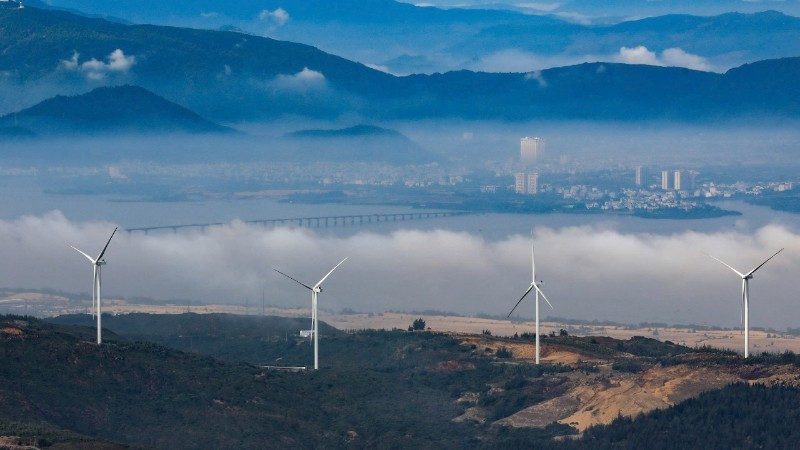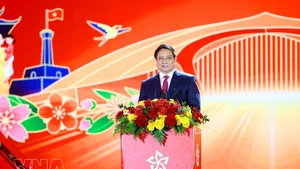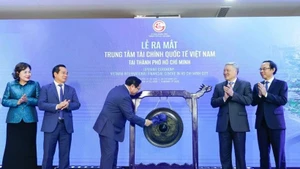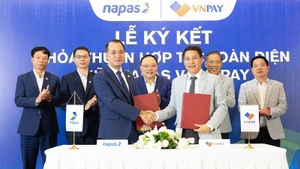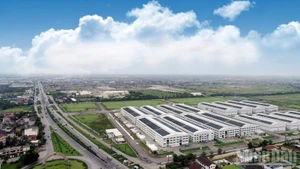However, this market still faces numerous shortcomings that need to be urgently addressed, adjusted, and supplemented to make clean energy more accessible to both people and businesses.
Localities and businesses show strong interest
The rooftop solar power development policy has been concretised through Resolution No. 70-NQ/TW (dated August 20, 2025) of the Politburo on ensuring national energy security until 2030 with a vision to 2045. The resolution sets the target that by 2030, the total power generation capacity will reach approximately 183–236 GW or higher, depending on actual demand.
In addition, Decree No. 57/2025/ND-CP (dated March 3, 2025) regulates the mechanism for direct electricity purchase and sale between renewable power generation units and large electricity users; and Decree No. 58/2025/ND-CP (dated March 3, 2025) of the Government details certain provisions of the Law on Electricity regarding the development of renewable and new energy. These are important policies that open new opportunities for the renewable energy and direct power trading markets.
According to Tran Minh Hoa, Deputy Head of the Energy Management Division under the Ho Chi Minh City Department of Industry and Trade, as the country’s largest urban area, the city’s electricity demand for household, production, and business purposes is enormous. With this potential, renewable energy generation is expected to grow by at least 20% per year in the coming period. The city prioritises renewable energy development to replace fossil fuels, focusing on waste-to-energy, biomass, and solar power. Additionally, wind power projects — both nearshore and offshore — are also being promoted. Surveys indicate that the city enjoys favourable conditions, with 1,400–1,700 hours of sunshine per year and coastal wind speeds of 8–10 m/s, making it suitable for wind and solar power development. With its large number of enterprises, rooftop solar power installation has attracted much corporate interest.
In Dong Nai Province, where tens of thousands of domestic and FDI enterprises are operating, demand for clean and green energy is substantial. The province’s planned electricity consumption for 2025 exceeds 21 billion kWh.
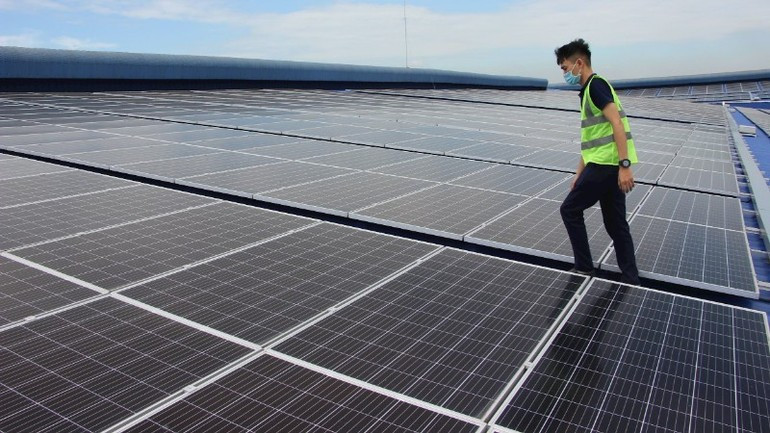
Although renewable energy policies have received close attention and specific direction from the central level, the realisation of these goals continues to pose challenges for many localities and businesses.
According to Tran Thuy Tien, Director of Market Development and External Relations at Constant Energy Viet Nam, the policy on direct power purchase and sale between investors and enterprises lacks a complete legal framework, particularly regarding pricing mechanisms, contract duration, and risk management amid market fluctuations. She explained that regarding electricity pricing, Decree No. 57/2025/ND-CP of the Government allows parties to negotiate prices directly. However, the Law on Electricity stipulates that the negotiated price must not exceed the ceiling generation price framework for each energy source. To date, investors have still been using the current retail electricity price as a reference for negotiation.
Decree No. 57 also requires power suppliers to obtain an electricity operation licence from a specialised agency authorised by Provincial People’s Committees, yet specific guidance on which agency handles the process and how it should be implemented remains unclear.
Addressing major bottlenecks
As an important policy to ensure national energy security and promote the green energy transition, the implementation of renewable energy policies in practice has not always matched the needs of people and businesses.
According to Vo Tan Thanh, Vice President of the Viet Nam Chamber of Commerce and Industry, many investors and enterprises have reported that administrative procedures during policy implementation remain complicated and time-consuming. The legal framework for direct power trading mechanisms remains unclear, making it difficult for businesses to purchase electricity directly from renewable energy projects. In operation, enterprises also face challenges in combining multiple power sources, especially when integrating rooftop solar systems with the national grid.
Although policies promoting new and renewable energy have been issued, implementation has yet to truly take effect, preventing businesses from fully benefiting. These obstacles have slowed the greening of production and even reduced the competitiveness of Vietnamese enterprises in international markets.
Nguyen Xuan Quy, Vice President of the Viet Nam Clean Energy Association, stated that small and medium-sized enterprises (SMEs), which account for 97% of total businesses and contribute 45% of GDP and 60% of employment, need access to affordable clean energy. However, this sector faces several challenges arising from decrees 57 and 58. Decree 57 stipulates that only large electricity consumers can participate in the direct power trading mechanism. Meanwhile, under Decree 58, SMEs also encounter difficulties if they wish to adopt self-generation and self-consumption models due to high investment costs. This creates a major disadvantage for these enterprises.
To access the promising renewable energy market, many SMEs have sought high-risk solutions on their own. Experts warn that the main cause of these difficulties lies in the inadequate legal framework, administrative procedures, grid connection mechanisms, and contractual arrangements that have yet to be properly addressed.
According to Tran Huynh Ngoc, Deputy Director of the Training and Development Research Centre under Power Engineering Consulting Joint Stock Company 2, the introduction of the direct power trading mechanism brings significant benefits, helping develop renewable energy sources for the nation and move toward a competitive retail electricity market. It also helps businesses align with the green development trend and reduce costs.
The current shortcomings call for regulatory agencies to promptly complete the legal framework, issue specific regulations, and remove existing barriers with the aim to soon implement the direct power trading mechanism and advance toward a competitive retail electricity market.
Doing so will accelerate the green energy transition in industrial parks, as well as across the country in general. Many enterprise representatives have expressed their hope for an early establishment of a competitive retail electricity market that allows customers to choose their power suppliers. Businesses and industrial parks should install rooftop solar systems to reduce production electricity costs and meet Environmental, social, and governance (ESG) standards. Moreover, households with similar needs can also benefit from this power source, as it offers the most efficient way for people to save on energy expenses.
